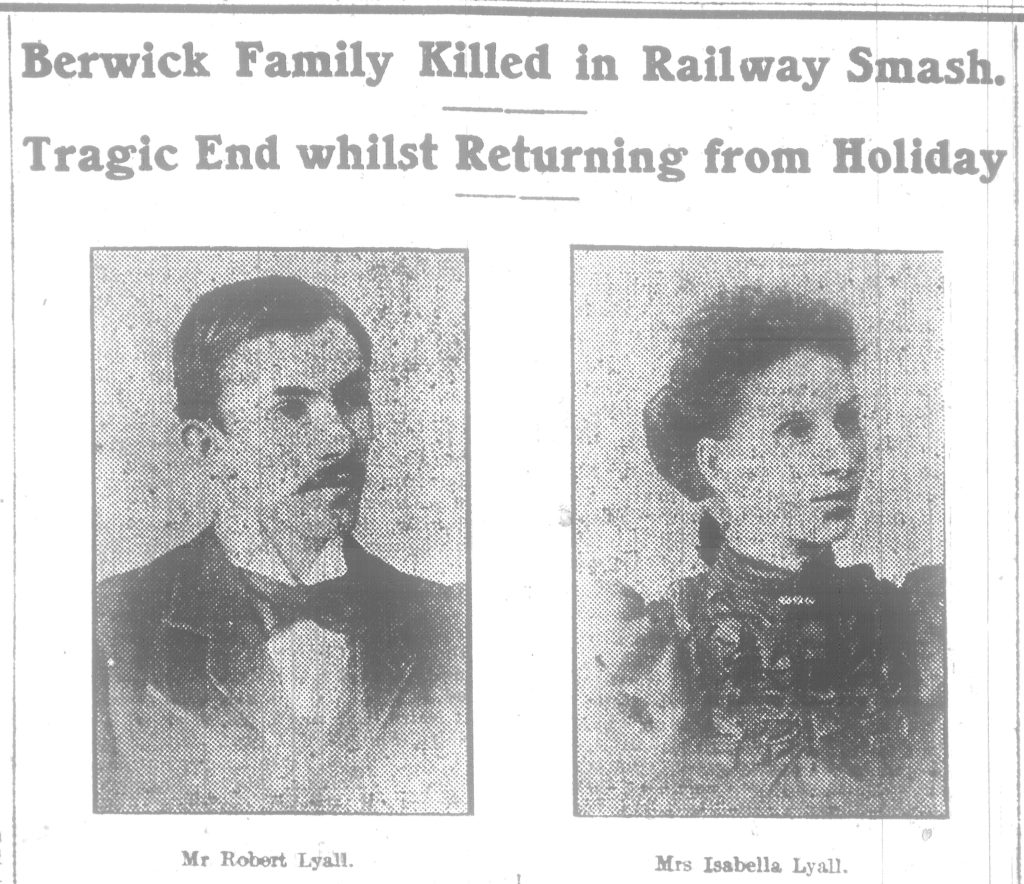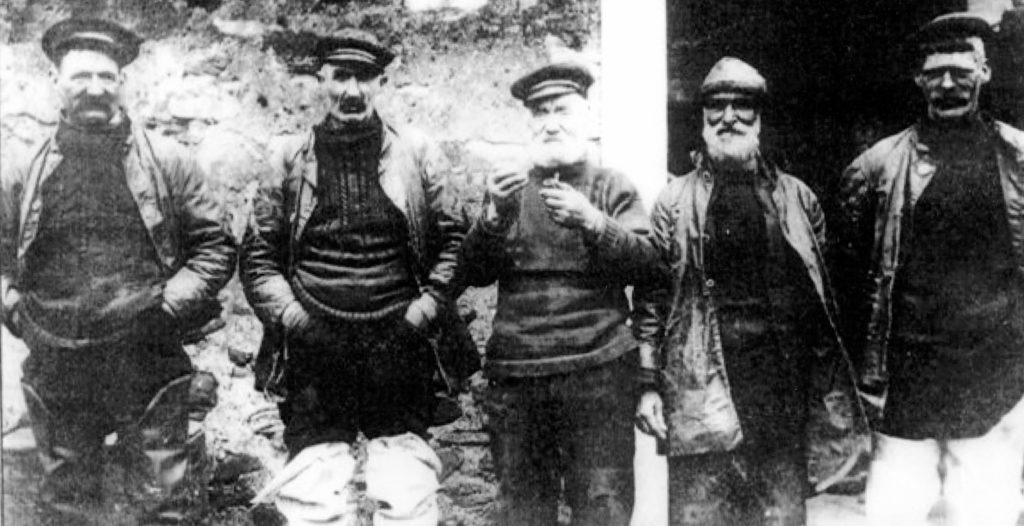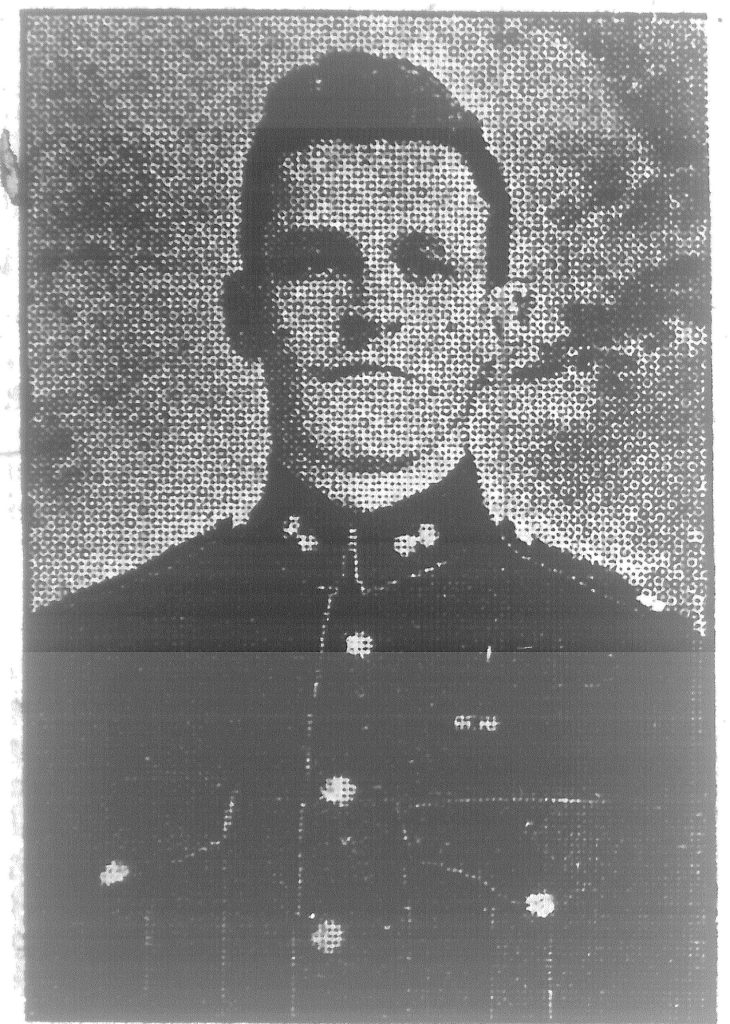BERWICK BOARD OF GUARDIANS
SCALE OF RELIEF UNDER ARTICLE XI REVISED
On the recommendation of the Workhouse and Finance Committee the Board agreed to continue the granting of unemployment relief under Article XI. They also agreed to reduce the present scale from 15s per week for a single man to 12s per week, and for a man and wife from 20s to 17s 6d per week, and from 5s for each child to 3s per week.
BOARD’S UPKEEP OF CHILDREN COSTS 15s A WEEK
It was intimated that the Carlisle Union were willing to take three children from the Berwick Union at present in Gateshead Home, and also two at present in the Workhouse for the sum of 15s a head for week.
The inmates were stated to be in the sick wards 13 men, 12 women, and two infants, a total of 27; and in other parts of the house 11 men, three women and two children, a total of 16, making a total of 24 men as against 23 last year, 15 women against the same number last year, two children against none last, and two infants against one last ear, a total of 43 inmates of all classes against 39 last year – an increase of four. The casuals numbered 19 as against 18 for the corresponding last year.
The Board agreed to continue for another year certificates of exception under the National Unemployment Insurance Acts.
RESOLUTIONS
Resolutions on the subject of war bonuses to Poor Law officers were submitted from Newmarket Union and from the National Poor Law Officers’ Association. That from the Newmarket Union urged that steps be taken to reduce the bonuses to Poor Law officers, and also called for the removal of the anomaly under the Poor Law Superannuation Act of 1896, whereby superannuation was 25 per cent higher than for other members of the community. The Poor Law Officers’ Association on the other hand, urged that this resolution be not supported as the scale of bonuses was regarded as fair to guardians and officers, and that it was unfair to compare the 1896 Act with claims for civil servants. The Board agreed to send both resolutions to the House and Finance Committee for further consideration.
A resolution from the Romford Union urging amendments in the Lunacy Acts was allowed to lie on the table. Some of the amendments suggested were that the terms mental hospital and mental patient should be substituted for asylum and pauper lunatics.
Another resolution from the National Union of Assessment Committee regarding the Removal of Machinery Bill was referred to the Assessment Committee.
Miss Greet gave notice of motion that two delegates and the Medical Officer be appointed at the next meeting to visit the Asylum at Morpeth to inspect the patients there chargeable to the Union.
SPORT
GOLF
The new putting course seems to have taken on with members of the Magdalene Fields Club and the general public, who are allowed to use it on the same terms as members of the club.
BERWICK GRAMMAR SCHOOL
On Friday evening the Berwick Grammar School boys played a foursome match together with the Old Boys’ Association- thus forging a new link between the Past and Present of the school. While all concerned thoroughly enjoyed the game, to the boys it was particularly pleasant and instructive, and they are eagerly looking forward to a return match. The Magdalene Fields club kindly allowed the players the courtesy of the greens. The match resulted in a win for Councillor J. Colin Campbell’s side by four matches to two. The details were as follows:- Mr J. C. Campbell and A. D. Patterson beat Mr James Richardson and J. D. Crosbie. Dr. P. W. Maclagan and R. W. Glahome beat Mr W. R. McCreath and W. Parkinson. Mr John Crisp and Roy Campbell tied with Mr C. Lee and Ivan Crisp. Mr I. Torrance Smith and Melville Caverhill beat Mr James Gray and Douglas Henderson. Mr R. S. Eaton and John Stoddart beat W. Patterson and J. D. Williams. Mr R. F. S. Morrison and Stanley I. Ballard tied with R. T. Renwick and Fred Stott.
THE MAYOR’S GOLF PRIZE
The Mayor (Dr Maclagan) who takes a great interest in the boys’ golf has offered a golf prize to the Grammar School. The draw for the prize is as follows: – 1st round-S. I. Ballard (29) v. D. Henderson (19). 2nd round- J. Stoddart (26) v. J. D. Williams (26); W. Grieve (15) v. F. Stott (18); W. Patterson (60 v.. R. W. Glahome (scr); R. T. Renwick (9) v. M. Caverhill (23); A. D. Patterson (6) v. winner of 1st round; J. D. Crosbie (5) v. G. Martin (11); Roy Campbell (17) v. W. Parkinson (11); Ivan Crisp (110 v. A. E. Fletcher (23).
LADIES’ MEDAL
There was a better entry for the ladies’ medal played over the Magdalene Fields course on Tuesday evening, 17 taking part. A high wind made good scoring difficult. The best card returned was a net score of 80 by Miss C. E. Purves. The best scratch score amongst the low handicaps were recorded by Miss Marshall with 96. Those qualifying for the match play for the Officers’ Cup are Misses C. E. Purves, K. Grant, Marshall, and J. Stirling.
TENNIS
DUNS v. BERWICK
The mixed doubles match against Berwick, played at Duns on Saturday, resulted in a win for Berwick by 7 matches to 2, 14 sets to 4, 99 games to 54. Details were:-
Miss Romanes and P. Deas ( Duns) beat Miss Tate and capt. Dover, 6-3, 6-4; lost to Mrs R. W. Maling and M. E. Maling, 0-6, 4-6; lost to Mrs Hutchinson and R. W. Maling, 2-6, 2-6.
Miss B. Laidlaw and T. F. Walton (Duns) lost to Mrs Hutcheson and R. W. Maling, 2-6, 1-6; lost to Mrs R. W. Maling and M. E. Maling, 0-6,0-6; lost to Miss tate and Capt. Dover, 4-6, 4-6.
Miss C. Fair and W. Easton (Duns) beat Miss Tate and Capt. Dover, 6-4, 6-4; lost to Mrs Hutcheson And R. W. Maling, 3-6, 3-6; lost to Mrs R. W. Maling and M. E. Maling, 3-6, 2-6.
EVENING TOURNAMENT
The Berwick Club held an evening tournament on the Pier Field courts on Thursday last. There were nine couples entered for the mixed doubles and six for the ladies’ doubles. The winners of the mixed doubles were Miss Middlemas and J. Fleming who beat Miss Cowe and J. Patterson 6-5 in the final. The ladies’ doubles were won by Miss K. D. Mackay and Miss Oswald, who defeated Miss Walker and Miss Buglas 6-1 in the final.
ACTIVITY AT THE DOCKS
There was great activity at the Dock on Wednesday morning, when a favourable tide, full at 11.21 a.m., allowed five boats to be safely berthed within two hours. The “Hibernia,” which is a regular trader with Scremerston coal to the South of England and the Continent, was one of the first arrivals, and as soon as she was berthed began coaling operations At the depot on the south side of the dock. She is taking on board a cargo of 328 tons for Plymouth. Wagons of coal awaited her arrival, and all hands were soon busy transferring the cargo. Alongside of her lay the “Horsham,” which arrived light on the same tide, and will also ship a cargo of 470 tons of Scremerston coal for Bremerhaven.

The next arrival was a dainty little sailing yacht from the Tyne with the 1st Tyne Sea Scouts aboard flying the Scout flag at the mast. The scouts are on a three weeks’ cruise, and have been as far north as Montrose and St. Andrews, where a pleasant time has been spent. The yacht is on her homeward journey, and on leaving Berwick will call at Holy Island, and then compete in a yacht club race to Blyth. She is a trim little craft lent to the scouts by her owner, Mr Anderson of Tyneside.
Then followed the steamer ”Orion” with a cargo of wood from Sweden for the Woodyard. She arrived in the bay on Tuesday, and the large craft was safely piloted up the river and berthed on the north side of the dock, where she will unload.
The last arrival was the motor drifter “C.S.L.” from Frazerburgh which brought a cargo of oats for Clarabad Mills.
The Danish sailing vessel “Gloria” arrived on Monday with a cargo of ice, which was also being discharged on Wednesday morning.
NOTES FROM SPITTAL
Spittal has always been a popular place for West Country children and in pre-war days it was the custom to give them a day at the seaside. Of late years owing to the war and railway restrictions this has not been possible, but this year the Railway Companies have seen their way to grant concessions and the public are taking full advantage of these. Last week Kelso Sunday Schools visited Spittal and on Monday Melrose Sunday Schools had their annual outing there.
The journey was made by special train by Kelso, a non-stop run from St. Boswells accomplishing the distance in little over an hour. There were some 300 children and fully another 200 adults, from Melrose and district. A pleasant day was spent on Spittal sands or in visiting Berwick and shortly after 6 p.m. all entrained once more at Tweedmouth station for the return journey. The youngsters, many of whom had not seen the sea before, were all tired with their day, but happy in the possession of spades, or pails filled with pebbles or shells, or sand, and local shops appeared to have done quite a good trade with shrimp nets. On Wednesday next another trip from the same district visits Spittal, and will include Sunday Schools from Newton Earlston, etc.











